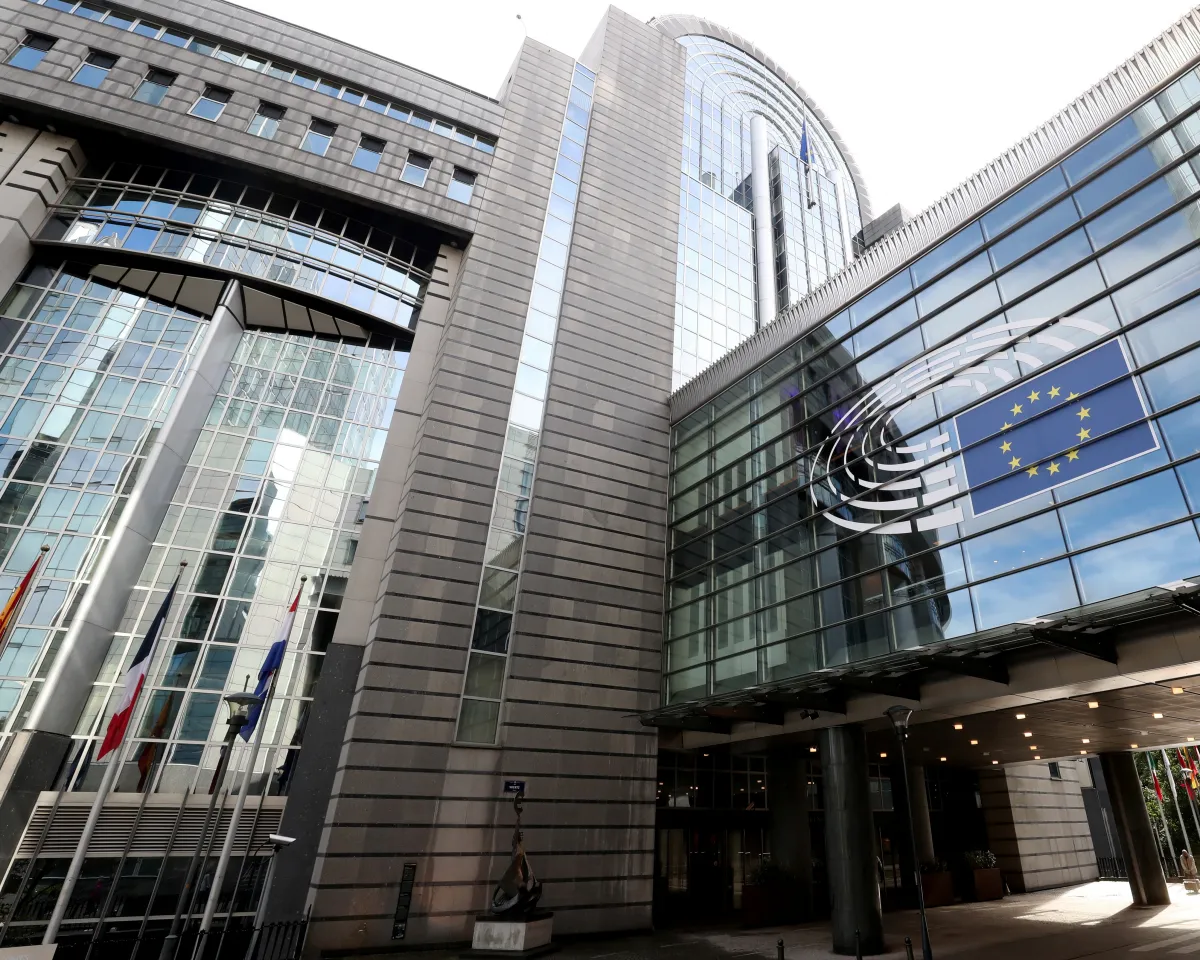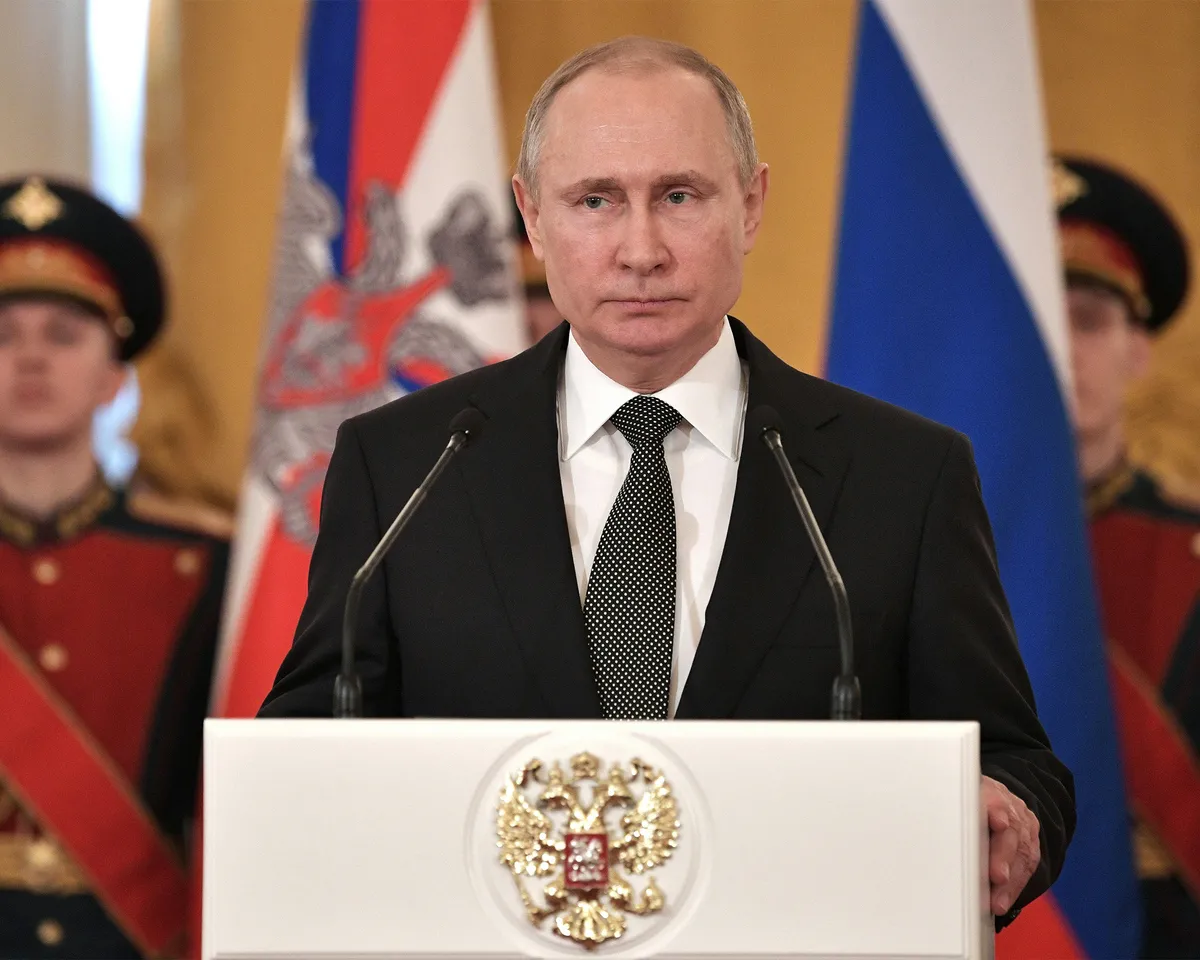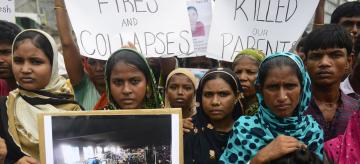National Politics: Europe and Eurasia
From the ongoing migrant crisis to the pros and cons of EU membership, learn about the issues and trends shaping ten countries today.
Europe’s claims on liberal, democratic traditions date back centuries. Innovations like the Magna Carta (which set limits on royal authority) and the Declaration of the Rights of Man and of the Citizen (which guaranteed certain natural rights) helped shape political systems not only on the European continent but also in former colonies—including the United States. Those liberal ideals continue to inform political dynamics on the continent to this day.
But European politics have been shaped by a number of other factors as well. Historically, European politics have contended with religious, ethnic, and cultural divides, as well as longstanding rivalries that often sparked destructive wars. These factors continue to shape the contours of modern European politics.
Modern political institutions have bound large portions of the continent together in spite of historic rifts. The European Union (EU) started as an economic partnership with a political goal—to maintain peace among members—and it has so far succeeded in achieving its initial aims.
Belgium: A Unique Host Country
Brussels is home to the EU headquarters. The city has, therefore, become a shorthand for the EU itself. (Think headlines about a “Brussels policy.”) How did Brussels and Belgium become so important to the EU? In the 1950s, the six countries that comprised the EU’s predecessor couldn’t decide where to base their new organization. Instead, they chose to rotate through each member country alphabetically. Belgium was first. But by the time the group secured a building in Brussels, the EU’s roots took hold and it never left—making Belgium a distinct EU character. Belgium is unique among European countries in other ways too. While it has roughly the same population as the Paris metro area (11 million), the country’s political power is divided across three levels, based on language and region. There’s the federal government. Then there are the Flemish, French, and German-speaking communities. And then there are three geographical regions. Belgium’s cultural and linguistic diversity means that its politics are also quite diverse—with each language community and region supporting different policies. A fragmented government alongside EU centricity has led some to characterize Belgian politics as caught between the regional and the global.
Germany: Migration Crisis Shapes Policy
Several European countries have struggled with immigration policies. But Germany has often been in the spotlight. In 2015, more than one million migrants entered Europe. Because many were fleeing the Syrian civil war, European countries were bound by the EU’s Dublin Regulation, which requires refugees to apply for asylum in the country they first enter. That policy quickly fell apart as countries allowed migrants to pass through to wealthier countries like Germany, which approved the vast majority of asylum applications. Since then, the majority of asylum applications have been lodged in Germany. In 2024, 3.5 million refugees were living in Germany. (One third were from Ukraine.) Those numbers have led to complaints by local officials who say they lack housing and resources for incoming asylum seekers. The decade-long influx has also impacted German politics, as 70 percent of Germans are dismayed over their government's handling of migration. This frustration has increased support for far-right political movements, which in turn has forced other parties to harden their immigration policies.
Turkey: A Flawed Democracy
Turkey has been a democracy since the 1950s, but it’s faced some recent challenges. In 2017, Turkey changed from a parliamentary democracy to an executive democracy, concentrating power in the presidency. On the national level, president Recep Tayyip Erdogan and his party rule virtually unopposed. Erdogan has held power for over twenty years. His final term is set to expire in 2028, but political allies have suggested changing the constitution to support yet another bid for presidency. Under Erdogan, Turkey has become increasingly authoritarian, as dissidents are arrested, newspapers are shut down, and independent courts are suspended. But at the local level, a different image of Turkish politics emerges. Whereas Erdogan’s conservative party holds power at the national level, opposition parties took control in most cities in Turkey’s 2024 elections. While Erdogan and his party maintain majority control over Turkey' s parliament, polls show nearly two-thirds of Turkish citizens are dissatisfied with their country’s democracy. Erdogan’s previous election victory in 2023 came with only 52 percent of the vote, signaling a growing national desire to move on from his rule.
Montenegro: A Long Road to EU Membership
Joining the European Union can take years. Montenegro hopes to join the EU by 2028. But it first applied for membership way back in 2008. Why did Montenegro make this decision—and why has it taken so long? Originally part of the Federal Republic of Yugoslavia, Montenegro split from Serbia in 2006, becoming an independent state. Unlike many of its neighbors, a vast majority of Montenegro’s citizens favor EU membership. They believe joining the EU will lead to better employment opportunities and a higher quality of life. But joining the EU hasn’t been speedy. For EU ascension, a country must hit certain “benchmarks.” These make up individual “chapters” that need to be closed before a country can be given membership. Chapters include reforms to political institutions and financial sectors—reforms that ensure rights and freedoms for citizens. Experts blame frequent government changes and low political will for Montenegro's slow ascension. However, the country’s EU bid gained momentum in 2023 after a candidate—running on a pro-EU and anti-corruption platform—unseated Montenegro’s then president, who had been in office for 30 years. Montenegro now sees itself entering the final stretch toward EU ascension.
Switzerland: The Case Against EU Membership
As much as the EU frames the region’s politics, nearly half of the countries in Europe are not members. Some countries, such as Serbia and Montenegro, want to join and are trying to meet the requirements for EU membership. Others, like Switzerland, have long voted against joining the EU. As a wealthy and politically stable country (and one with friendly neighbors), Switzerland has little economic or security incentive to join. If anything, Switzerland has several disincentives—including fears that membership would decrease Swiss wages and lead to high immigration. But being outside the EU doesn't mean Switzerland has no relationship with Brussels. In fact, the EU is Switzerland’s largest trading partner, and the two have negotiated trade deals that, in exchange for access to EU markets, bind Switzerland to complying with certain EU rules. Some believe Switzerland benefits most from this relationship—without having to do much in return. Swiss citizens themselves are mostly divided on the EU. A 2024 poll found that nearly half of Swiss respondents thought their country should either be closer to the EU or remain in its current position; meanwhile, 40 percent felt their country was, at least to some degree, too close already.
Russia: Elections Under Authoritarianism
When the Soviet Union collapsed in 1991, many in the West hoped relations with Russia would normalize. Russia’s post-Soviet constitution set up a federal government similar to that of the United States: three branches, a bicameral legislature, and a president at the head of state who is elected by popular vote. Since Vladimir Putin’s political rise, however, Russia’s democratic foundations have eroded. Under Putin, state-owned media outlets publish disinformation, outspoken critics have been killed, and political opposition has been silenced. One of the most obvious ways in which Putin undermines democracy is through the manipulation of Russia’s elections. In Russia' s 2024 elections, Putin won a fifth presidential term with nearly 88% of the vote, a post-Soviet record. However, Western governments condemned the results as predetermined and undemocratic. Anti-war candidates (who were not already imprisoned) were barred from running. Protesters were arrested. Votes were illegally cast in occupied Ukrainian territory. And independent Russian media reported rampant voter intimidation and fraud. With Putin’s authoritarian rule over Russia—already the longest since that of Joseph Stalin—likely to extend as far as 2036, Western hopes for a democratic Russia have faded.
Azerbaijan: How to Control the Media
According to its constitution, Azerbaijan, like Russia, is a presidential republic. A president—currently a fifth-term leader who took over from his father in 2003—appoints a prime minister and cabinet members with approval from parliament. However, also like Russia, opposition parties have criticized the president for abusing this power, failing to hold fair elections, and suppressing political dissent. How has the president maintained popular support? One way is through the media. According to watchdog organizations, major Azerbaijani media is under government control. State-owned TV channels dominate the airwaves. Some networks are even reportedly owned by relatives of the president. Meanwhile, there is no independent radio. And newspapers critical of the government have been shut down. Media laws in the country have legalized censorship, making it easier to crack down on opposition. The government also controls advertising, making it harder for independent outlets to survive. There are also incentives to give the government support: pro-government media have reportedly received cash bonuses. The result of these practices is almost complete control over public information inside the country.
Sweden: Europe’s Climate Role Model
In 1967, Sweden became the first country to pass an environmental protection law. Since then, it has remained a leader in climate policy—both in Europe and the world. Sweden has implemented carbon taxes, invested in renewable energy, and adopted legislation to protect its vast forests. Its goal of carbon neutrality by 2045 is five years ahead of the rest of the European Union. What makes Sweden stand out? One reason is its voters. Sweden’s robust climate policy is possible because most citizens agree that climate action should be a priority. In a recent poll, 73 percent of Swedes reported that climate change was one of the most serious problems facing humanity. (In comparison, only 46 percent of EU citizens reported similar fears.) Sweden is also home to notable political voices, like Greta Thunberg, a climate activist famous for her powerful speeches. The public acceptance of environmental policies helps Sweden maintain a productive economy while also supporting one of the world
Vatican City: A Country Within a Country
Vatican City occupies less than a quarter of a square mile of territory in Rome, Italy—making it the world’s smallest independent country. Founded in 1929, the Vatican is the international headquarters of the Catholic Church and home to its leader, the Pope. In Vatican City, the Pope has total power over the government. For example, the Pope issued a new constitution in 2023 that allows women to serve in the Vatican’s legislative body—a big change for the male-dominated government. The legal system is also based on church law, meaning Catholic traditions like fasting on Ash Wednesday are enshrined in Vatican law. Despite its location, the Vatican is not bound by Italian laws. In fact, the Vatican is politically neutral. The Pope does not endorse political candidates, and the Vatican’s primary international goal is to promote peace. Still, the Pope has weighed in on Italian politics, criticizing abortion and divorce laws because they contradict the beliefs of the Catholic Church. However, Italy and the Vatican are separate countries—despite the Vatican’s unique location—and the diplomatic relationship between Italy and the Vatican remains friendly.
Spain: Catalan Identity vs National Unity
In 2017, parliamentary leaders of Catalonia—a semi-autonomous region that includes the city of Barcelona—attempted to secede from Spain. These pro-independence officials were supported by millions of Catalan voters. Many believed their region should be an independent nation, as Catalonia maintains strong cultural distinctions from the rest of Spain, such as using a different language. This separatist momentum, however, was curbed by the Spanish government. Threatened by the potential breakup of their country and the loss of Barcelona as an economic hub, the Spanish government arrested the region’s political leaders and nullified their independence referendum. Protesters took to the streets, but Catalonia ultimately remained a Spanish region. More recently, popular support for pro-independence candidates in Catalonia has dwindled. Disorganization within the movement and fears stoked by the COVID-19 pandemic and war in Ukraine have made many Catalans reconsider their desire for complete autonomy. In Spain’s 2023 elections, the Socialist Party—which does not support Catalan independence—won the majority of votes in the region. After more than a decade of separatist leadership, a political shift away from Catalan independence may be emerging.










